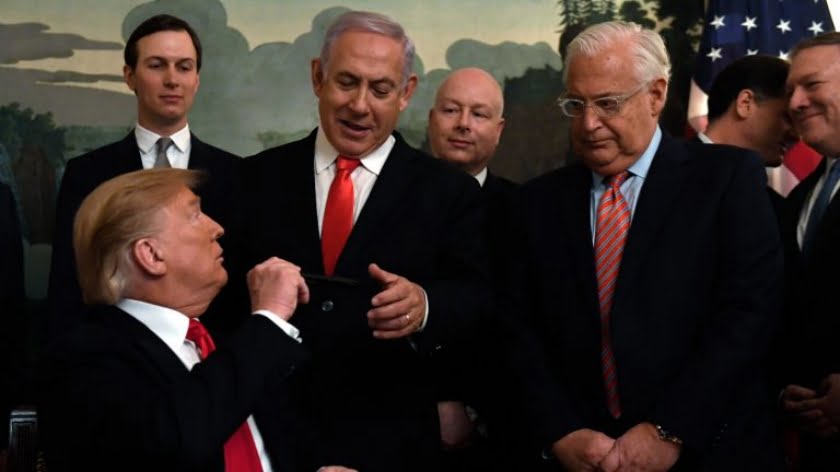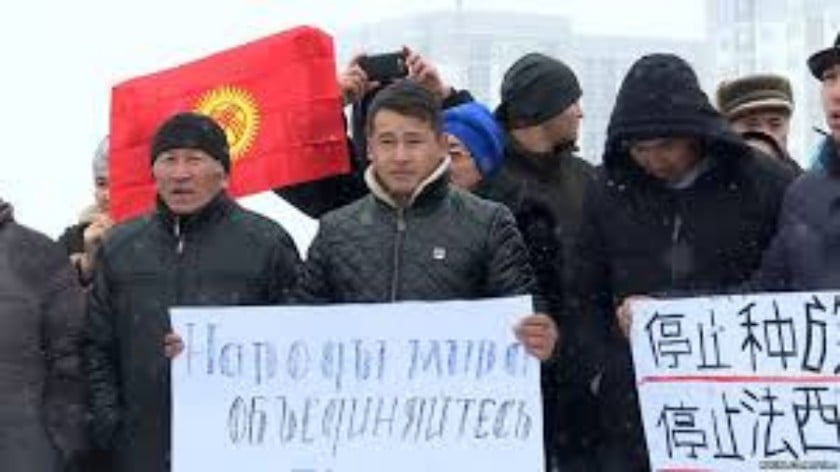Why Moscow Doesn’t Just Knock Him Over
Moscow knows what Washington has not yet learnt: it’s not just one guy, it’s a whole country and sugar hits don’t last.
Every time – and we’ve just had an illustration – someone in Kiev makes trouble for Russia, the Internet is full of people crying on Putin to just go in and knock them over. A sub-variant of this is that Moscow should have invaded after the Maidan coup, arrested all the nazis and put Yanukovych back to serve out the rest of his term under the now-forgotten agreement hammered out by the EU.
But there’s actually a good reason why Moscow, in Ukraine or earlier in Georgia, did not invade and knock Zelensky or Saakashvili over and why it doesn’t forcefully deal with other irritations. And that reason is a very simple one: it’s not that it couldn’t have done it – there was nothing between Russian power and Tbilisi in 2008 or between it and Kiev in 2021 – but, simply, experience. Both Moscow’s experience and its observation of others’ experiences.
We will start with others’ experience. The Royal Navy began to switch to oil fuel just before the First World War and that made assured oil sources vitally important to it and, by extension, to Britain and other naval powers. Iran (Persia) was a major source and Britain made a rather one-sided agreement after the war giving a British company excessive rights to oil sources in Iran. Iran was heavily influenced by Britain from that point on, to the growing resentment of the Iranians who saw themselves getting little out of the arrangement. In 1951 Mohammed Mosaddegh became Prime Minister and nationalised the oil company. A pause should be made here – later experience has shown that such nationalisations are very far from catastrophic: the oil has to be sold to somebody, the price isn’t set by the selling country and, in the end, it’s actually a business matter that can be settled by business methods. The Suez Canal functions and so does the Panama Canal despite local control; state-owned companies sell their oil and life goes on. But such was not considered acceptable – fear of communism or the Soviet Union gaining control or just amour-propre – and, in the end, it was decided to solve the problem by getting rid of him. Mosaddegh was overthrown in a coup organised by London and Washington but mostly carried out by the CIA. And so the problem was solved. Officially denied by London and Washington for years, the CIA’s involvement was confirmed in 2000 and more documents were released in 2017. But the Iranians always knew who did it and the coup greatly contributed to their dislike of the USA and was a strong motivation in the overthrow of the Shah in 1979. Today Iran is perceived in Washington as a “daily threat” and its extensive armoury of missiles “a significant threat“. Several decades of neocon/PNAC/exceptionalist harebrained machinations against the “Iranian threat” has made it more powerful, more influential and more determined than before. It is now a very significant obstacle to American ambitions to control the MENA. So, in retrospect, the overthrow of Mosaddegh was not so successful after all and sixty years later the problem is very far from “solved”. Doing business with Mosaddegh, in the long run, would have been the better response and Iran might even be well-disposed towards the USA and its allies or at least indifferent today. Knocking Mosaddegh over worked at first, but the effect didn’t last.
This was then-new CIA’s first known venture into “knocking him over” although Washington was well-practised in the custom – perhaps the first was the coup that overthrew Queen Liliuokalani of Hawaii in 1893 – but there were to be many more. Diem in Vietnam; but that didn’t work either and the Vietnam War just got worse until the USA retired in defeat. For years Washington has proceeded under the delusion that it’s just one person that stands in its way and with him removed the road will be smooth. It never is, but Washington never stops trying. Washington has overthrown many governments in Latin America without, it appears, bringing stability or friendship any more genuine than the passing dependency of the current beneficiary. Even Newsweek ran a piece concluding: “As it stands, however, the only evidence we have of anyone interfering with any election or government implicates the U.S. — not Russia. But don’t let facts get in the way of a good story.” Seventy-two attempts during the Cold War calculated the Washington Post. Knocking him over is very much the American style of diplomacy.
The resentment of the outsider’s interference never goes away. And, as the case of the Shah illustrates, any excesses the puppet commits are attributed to the puppet-master. Americans are very offended with the “Great Satan” chants and flag-burnings but – typically – they cannot understand the why of it: Iranians blame Washington for everything bad between the overthrow of Mosaddegh and the departure of the Shah and continual hostility thereafter. And, from the arming of Saddam Hussein, the naval battle and the civilian plane in 1988 to the killing of Solomeini last year, they can enumerate examples. Far better from Washington’s perspective if Mosaddegh had been left in power.
Another disastrous CIA enterprise was the subversion of Soviet-supported governments in Afghanistan especially the post-Soviet one of Najibullah. In doing so, Washington built up the very elements that would, after an involvement that more than doubled the Soviet stay, send it and its allies home in defeat. There is no doubt that Washington would be happier with a Najibullah in Kabul than with what will be there in a year.
Speaking of Afghanistan, we now turn to Moscow’s direct experience of failure. In 1978 the local communist party pulled off a coup in Kabul no doubt with some involvement from Moscow. But the Afghan communist party was deeply split and the government was too hasty in communisation; dissatisfaction grew and the communist government trembled. This could not be tolerated under the so-called Brezhnev Doctrine and Moscow decided to end the problem by knocking him over; it invaded, the present leader was killed and replaced by Babrak Karmal from the rival faction. Karmal eased off on the communisation but it was too late; the revolt expanded, the Soviets got bogged down and finally left the, in Gorbachev’s words, “bleeding sore” in 1989.
In Hungary in 1956, Imre Nagy, a long-time communist, spoke in favour of a “new course” reform after Khrushchev’s condemnation of Stalin’s “cult of personality”. This led to revolution and a Soviet invasion which deposed Nagy and later tried and executed him. A similar attempt in Czechoslovakia under Alexander Dubček of “Socialism with a human face” in 1968 was similarly crushed by an invasion and deposition of Dubček. He at least was spared to live to see the end of the Soviet Union.
So Moscow can remember three cases in which, under previous management, it just “knocked the guy over”: Nagy, Dubček and Hafizullah Amin. In no case was there any profit except in the short run. Hungary and Czechoslovakia dropped the Warsaw Pact, the USSR and communism as soon as they possibly could and the resentment carried them into NATO. The Afghanistan War limped on until Moscow admitted defeat and handed it, as you might say, off to Washington so it could be defeated there in its turn. (Speaking of cunning schemes that have disastrous results for the schemer, the case can be made that it all began with Brzezinski.)
Had Washington and London left Mosaddegh alone they would both be happier today and, in all likelihood the price of oil would be the same and the supply just as assured. Admittedly it’s hindsight but hindsight is supposed to produce foresight. Washington’s endless interventions in Latin America have brought only short-term benefits and have left a legacy of hatred that will, one day, boil up. Washington would have been wiser to have left Afghanistan as it was just as Moscow would have been. Overthrowing Nagy and Dubček brought short-term gain and laid the ground for longer term problems – especially as Prague has become a Tabaqui thinking itself safe between Shere Khan’s paws.
In short, the lesson of history is that, in almost every case, “knocking him over” gives a geopolitical quick sugar hit that will be paid for later. Moscow knows this because it is smart enough to learn from its own and Washington’s failures. I can never stress too often that Moscow was once an exceptionalist power: for seven decades it was the capital of the leading and guiding light of history as the “world’s first socialist state”, the standard-bearer for the “bright future of mankind”, producer of a new type of human being and that exceptionalism brought it neither friends nor prosperity. Putin himself called it “a road to a blind alley“. But Washington is still in its exceptionalist phase and thinks that doing the same thing again this time will succeed.
And sometimes there isn’t even the quick sugar hit: for each in Afghanistan the hangover began within a few weeks. If Moscow had driven into Tbilisi and sent Saakashvili running – Shere Khan would not have come to Tabaqui’s defence then or in Ukraine – Moscow would then have to do something to create a Georgia more to its liking. Conceivably Russian intervention could have kept Yanukovych surviving under the EU-brokered agreement but it is highly probable that the next election would have brought the Maidan people to power and the situation would be much as it is today as far as Moscow is concerned. As for a swift drive on Kiev last month, there is no doubt Moscow had the military might to do it, but then what? As Bismarck observed, one can do anything with bayonets except sit on them.
And Moscow has enough experience in the USSR days of trying to sit on bayonets and can watch Washington’s failures.
In short, Moscow knows what Washington has not yet learnt: it’s not just one guy, it’s a whole country and sugar hits don’t last.







